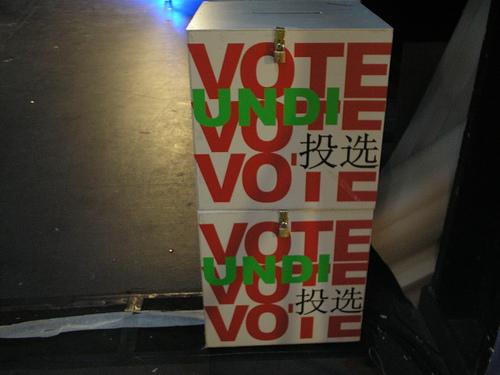To our relief, the Parliament has finally been dissolved and the election date has been set. Enjoy the few weeks of freedom while you can. For the past five years, the people have been subordinate to the leaders; for now, the leaders are subordinate to the people. Rousseau would have most likely agreed.
This brings us to the topic of discussion: leaders, who when we tear down the mask of assuming a political position, are people as well. Meeting a famed politician might be the highlight of one’s life, but at the end of the day, they are no better than you or me. They just chose a path which elevates them differently.
Most institutions such as companies or the government spend dollops of money investing in people – to build human capital, so goes the vogue. But you can invest in people too. And the best way to do so is through your votes.
In investing one’s time, labour or capital in something, one does not blindly invest hoping that the fruits of investment will grow because of the act of investment itself. One makes meticulous calculations, evaluations and exercise circumspection to ensure a substantial return.
When choosing a party to vote, I heartily agree that the policies of the party are of utmost importance. Nevertheless, it is being that shapes policies and not policies that shape being. What I mean is that it is the people who created the policies and if they are elected, they will be the ones who will execute the policies. The policies will not make better leaders as policies are just ideas and cannot bend the will of its creators. If the people are rotten to the core, no matter how benevolent the policies sound, the policies are susceptible to being watered down, inefficiently implemented, or worse, backtracked.
What do I mean when I say that you can use your votes to invest in people? Votes are weapons. It is of course not the sole weapon. Democracy is larger than elections. There are extra-parliamentary measures which can be taken, such as protests, strikes, debates, engagements, etc. Elections are only a component of democracy, but a key component nevertheless.
In looking at the structure of the coalition, excessive attention is given to the heads of the party, be it Anwar Ibrahim or Najib Razak. I think it is time to shift our attention away from the upper structure of the pyramid to look at the people who underpin these leaders, namely their circle. Their circles are important because they have a dialectical relationship with the party head; the mutual engagement substantially determines the direction of the party. The head must not be looked at in isolation. His relationship with other must also be considered.
When a party is elected into power, the promising talent within the party is given the opportunity to cultivate their potential. Being in government is an enabler for them, and with the funds and authority at their disposal, they are able to implement their ideals to further propel Malaysia. This is what I mean by investing your votes in people. If you believe that the party has individuals that are capable of being developed further, it is only prudent to allow them to govern and apply their abilities to full effect.
In Malaysia which operates under a federated system, the national opposition is the government in a few states. This would mean that the people within the coalition would have had some of their ideas implemented at the state level. This also means that young people among them would have acquired some experience in governance, which is more of a reason to distrust the argument that the opposition lacks the experience to govern nationally.
Unfortunately in Malaysia, the reins of power still lie with the federal government. In order to develop the young leaders that we have, a better platform would be for them to serve at the national level. Only then could they harness their full potential.
Personally, when I see the opposition coalition, I see a wide range of talent whose only desire is to push Malaysia further. I cannot for the life of me say the same for the ones in the ruling coalition – they are either intelligent but morally ambiguous or principled but liable to be stifled down by the ultraconservative hawks within the party. The only setback for the opposition in this context is PAS, which is a gerontocracy with a dogmatic Ayatollah-style spiritual leader.
Most critics claim that PKR is a party of disenchanted ex-UMNO members. This might be true for the early years post-Reformasi. However, a new generation of leaders are cropping up, with no links whatsoever with the UMNO-tainted past. This argument that PKR is comprised of ex-UMNO members just demonstrates that UMNO members themselves are effacing agents.
UMNO is not what it used to be during the Merdeka years. At that time it was a party of teachers. Even my uncle who was a teacher joined UMNO. To my mind, most teachers are altruistic, sacrificing material pursuits for collective gain. But now, UMNO has evolved into a party of capitalists, joining the party to enrich themselves and to consolidate power.
Pakatan Rakyat isn’t comprised of angels but a comparative analysis with BN would show you that it is relatively better. It is the structure of the party which conditions the behaviour of the people within the party. An ultraconservative party would most likely try to silence the liberal patches within the party to ensure a consistent party line and quell dissent. This would only lead to a strengthening of the “group mentality” and further lead to a want of debates within the party. The result is stagnation.
Of course, there is more to looking at the people within the party when voting. This is merely one dimension. But it is an essential component which warrants your consideration.

